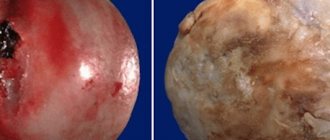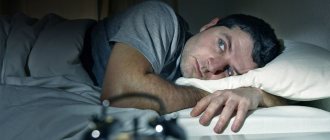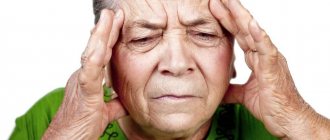Cognitive disorders: how to recognize and help a loved one in time?
Date of publication: 08.28.2020 From the life of the hospital
WHO recognizes dementia as a public health priority. The forecasts given by experts are alarming. Thus, according to the World Health Organization, in 2030 the total number of people with dementia in the world will be about 82 million, and by 2050 there may be about 152 million.
Dementia has become “younger”, and today it does not only affect the very elderly, but 9% occurs in people under the age of 65. There are many misconceptions associated with this disease. Not everyone knows that the cause of cognitive disorders can be not only heredity, but also poor lifestyle choices, bad habits, and excess weight. Previously, it was believed that the decline in cognitive functions with age is a normal process: a person ages, and therefore becomes forgetful, irritable, and confused. But today experts have come to a different opinion: the aging processes of the brain, which are irreversible, can be slowed down and help a loved one live longer in a clear mind.
Anastasia Vasilenko, a psychiatrist at the Stavropol Regional Psychiatric Hospital No. 1, Candidate of Psychological Sciences, spoke in detail about the causes and mechanisms of the appearance of cognitive disorders.
– What are cognitive disorders?
– Cognition is knowing. Cognitive means everything that relates to cognitive processes - perception, thinking, memory, attention, the ability to make plans and evaluate the consequences of one’s actions. Simply put, it is something that relates to the mind and intellect.
– What age people are at risk?
– If we talk about age dynamics, it is clear that we are always different. Every year we are different from who we were before. There is so-called healthy aging, and there are disorders and diseases. With healthy aging, a person does not have severe memory impairment, and he does not do anything absurd. When these disorders appear, we say that senile dementia or some other type of dementia begins to develop. Unfortunately, such cognitive impairments do not only occur in old age. In general, intellectual spectrum disorders can now begin after 40 years of age.
– Dementia or dementia: what is it and why does it begin to progress?
– Dementia is the loss of the ability to think, remember and remember correctly. When a person begins to develop intellectual spectrum disorders, the first thing that becomes noticeable is memory impairment. He becomes forgetful. Sometimes such disorders occur very early. In my practice, I have seen the development of dementia both at the age of 36 and at 27. If you notice that problems arise with memory, you should consult a doctor.
– Why does the brain start to work differently?
– There are two main forms of dementia. The first is due to genetic prerequisites. These are Alzheimer's disease, Parkinson's disease and some others. And there is dementia, which develops without such a genetic predisposition, but as a result of the fact that the brain suffers for other reasons. It never happens “suddenly”, it never starts suddenly. The development of dementia can be facilitated by lifestyle, the presence of diseases and negative environmental factors in which a person lives. Here it is appropriate to use such a concept as brain hygiene. At 17-20 years old, if there are no diseases, the brain is in excellent condition. And if a young man does not drink alcohol, does not smoke, does not use drugs, plays sports, is not overweight, and takes care of his health, his brain will remain in good shape for a long time. And there is a high probability of living to 70, 80, 90 years old with a clear mind.
Anastasia Vasilenko said that the cause of the development of dementia before the age of 30-40 can be chronic alcoholism, advanced endocrinological diseases, hypertension, smoking, a sedentary lifestyle, excess weight, and traumatic brain injuries. For these reasons, the blood supply to the brain is disrupted, and it gradually begins to die. If treatment is not started, dementia will develop catastrophically quickly.
The psychiatrist also recalled that against the background of a severe infection or some other disease, temporary memory loss and loss of attention may appear. But this happens due to the fact that the body is weakened. It’s worth healing, getting enough sleep, resting, and your intellectual abilities will be restored.
– What symptoms should alert you and make you go to the doctor?
– Even from a sedentary lifestyle, the brain suffers. The first symptoms to pay attention to are headaches, dizziness, and nausea. When they appear, you need to contact a neurologist. In this case, there are still no impairments in memory, attention, or cognitive functions, but the person feels heaviness in the head, gets tired quickly, has trouble thinking clearly at the end of the working day, and actively reacts to weather changes. This indicates insufficient blood supply to the brain.
Anorexia, illiterate vegetarianism, diabetes mellitus, and any endocrinological diseases can also lead to disturbances in the nutrition of nervous tissue. Important! If you are physically healthy, if you lead an active lifestyle and consult a doctor on time, and not just mindlessly take pills, then your brain will be healthy. But this does not apply to Alzheimer's and Parkinson's diseases.
– How to notice the first symptoms of Alzheimer's disease?
– Memory disorders and intellectual disorders are growing very quickly, which are more pronounced in Alzheimer’s disease than in senile dementia. The person suddenly becomes confused, cannot understand what is happening, because he does not remember current events well. Literally, if he turns away from you and turns again, he will think that he saw you for the first time. Such patients always look surprised and confused. There are also disturbances in speech and usual order of actions. Patients confuse words and cannot, for example, perform a simple test: disassemble and reassemble a ballpoint pen.
As Anastasia Olegovna noted, up to a certain point a person can understand for himself that he is developing dementia. He complains of a short-term memory disorder and forgets what happened a day or an hour ago. Whether treatment will be prescribed on time, how the disorder will progress - all this depends on the patient’s environment. It is the loved ones who must sound the alarm in time and not ignore the symptoms.
– Dementia can be accompanied by psychotic disorders: with or without delusions, hallucinations, aggression, significant behavioral disturbances. It is clear that if a person suddenly expresses delusional ideas (for example, “you want to kill me and take my apartment”) and behaves aggressively, then the relatives turn to a psychiatrist. But when there are no such obvious violations, and memory and intelligence fade away gradually, unfortunately, it is very late to seek help. And often relatives say that everything was fine “literally until yesterday.” But when you start asking questions, it turns out that five years ago the patient had forgetfulness, and two years ago she got lost on the street, and for the last year she has been afraid to leave the house because she is not sure that she will find her way back. Then it becomes clear that the symptoms appeared a long time ago. Patients with dementia often remember events from the distant past to the smallest detail, but current ones are not fixed in memory. Many people say: yes, my grandmother has such a memory, no one in the family has such a memory, she recites “Eugene Onegin” by heart. But in fact, this is a formidable symptom that current events are already being erased from memory.
– These disorders cannot be cured, but is it possible to somehow prolong mental clarity?
“Both relatives, doctors, and patients themselves understand that the process is irreversible. And this sometimes makes them refuse treatment, which is wrong. The more attention is paid to the disease, the better the doctor’s prescriptions are followed, the longer the patient will remain independent in simple everyday situations.
Medicines exist, their action is effective, but they do not reverse the development, because the dead nervous tissue is not restored. Medicines help neurons start working more actively: they become less tired, and a person maintains a high level of functioning longer. Drug treatment is necessary, but it alone is not enough. Supportive social events are needed. A person with dementia needs to be able to navigate where they live. To do this, it is necessary to maintain order in his room (every thing has its own place), place a clock and a calendar on the walls. It is important to keep the pills in the pill box and monitor how the patient takes them. And the main thing is to train skills that are needed constantly: going to the store for bread, dressing yourself, brushing your teeth. It is important not to try to do what a person can still do himself.
– In order for the brain to continue to function longer, you need to train those functions that you want to preserve. The brain is good at what it does every day. In order for it to remain “fresh”, you need to constantly learn. Dance, learn foreign languages, learn poetry, read books. Constantly learning keeps your brain sharp!
The full version of the interview broadcast on the Svoe TV channel can be viewed at the link
Watch and read us on social networks
The illustration for this publication was taken from the public image library https://www.freepik.com/ and from open sources. You can read in detail about using illustrations from the Freepik library here
Physical rehabilitation
Physical activity is an integral part of medical rehabilitation and is a system of measures to restore or compensate for physical capabilities and intellectual abilities, increase the functional state of the body, improve physical qualities, psycho-emotional stability and adaptive reserves of the human body by means and methods of physical culture, elements of sports and sports training, massage, physiotherapy, acupuncture and exposure to natural factors. With low physical activity (the absence of any type of physical activity, with the exception of natural minimal muscular activity), a number of structural and functional changes occur in the human body, contributing to an increase in the level of anxiety, a more frequent development of depressive states, phobias, astheno-neurotic reactions, and an increased risk of developing dementia. , decreased concentration. WHO recommendations define physical activity not only as playing any sports, but as any type of activity: household chores, physical activity (for example, walking or cycling), activity during professional activity (if the person is still working), activities within everyday life, family and community. Regular walking can provide a minimum level of low- to moderate-intensity exercise and is affordable for most people.
For cognitive impairment, it is recommended to exercise therapy and swimming in the pool, walks in the fresh air, cycling, Nordic walking, dancing to your favorite music at home, board games: chess, checkers, backgammon, as well as solving crosswords, puzzles, Sudoku. Activities of daily living, such as climbing stairs, gardening, etc., can also have beneficial effects on a person's health, provided that the intensity of the activity is appropriate to the individual's ability.
Normal brain aging
Postmortem pathological studies indicate that brain mass gradually decreases with age.
This process begins approximately in the third or fourth decade of life. The most pronounced atrophic changes are observed in the frontal lobes of the brain, postcentral and superior temporal gyrus, and visual cortex. In these formations, the degree of neuronal loss by 70–80 years can reach 32–48%. A reflection of age-related cerebral atrophy is the expansion of the ventricular system and subarachnoid spaces, which is often detected on computed tomography (CT) or magnetic resonance imaging (MRI) of the brain in elderly people.
Significant morphological and neurochemical changes are also observed in the subcortical basal ganglia: striatum, amygdala, substantia nigra, locus coeruleus, cranial nerve nuclei in the brain stem. In the substantia nigra and locus coeruleus, by the ninth to tenth decade of life, the number of neurons decreases by 30–50% compared to the end of the second decade of life. As is known, the substantia nigra and locus coeruleus are key subcortical formations for the ascending dopaminergic and noradrenergic systems. Therefore, morphological changes in these structures lead to mild functional deficiency of these neurotransmitter systems. With age, the activity of the acetylcholinergic, GABAergic, and possibly glutamatergic neurotransmitter systems also decreases.
Aging is accompanied not only by a decrease in the number of neurons in cerebral formations key to cognitive activity, but also by changes in the functional properties of the remaining neurons. A number of studies have shown a decrease in the number of dendrites and synapses between neurons with age. Certain changes also occur in the white matter, where partial demyelination is noted, mainly in the anterior parts of the brain, and a decrease in the number of gliocytes. Atherosclerotic and arteriosclerotic changes in cerebral vessels are very common in old age, which are detected in most people over 65 years of age. It has been shown that the perforating arteries supplying blood to the basal ganglia are most affected.
Medication methods
Drug prevention and correction of cognitive disorders consists of drugs with neuroprotective effects. These drugs can be roughly divided into herbal products and nootropics. Among herbal preparations, the leading positions are occupied by such remedies as ginkgo, which improves microcirculation of brain tissue, and gotu kola, which has the ability to improve cognitive abilities and is also a powerful antioxidant.
Nootropics have a specific positive effect on the higher integrative functions of the brain. Nootropics can improve information exchange in the brain, as well as provide membrane-stabilizing, antioxidant, and antihypoxic effects [6, 7, 9, 12]. These include non-peptide bioregulators, such as choline, which restores acetylcholine deficiency, improves the functioning of the nervous system and metabolism, has an antitoxic effect, increases antioxidant status, and increases resistance to stress. Nootropics are available among peptide bioregulators, the main representative of which is the neuropeptide cortexin. Cortexin has a tissue-specific multifunctional effect on the brain, which manifests itself in metabolic regulation, neuroprotection, functional neuromodulation, neurotrophic activity, increases the efficiency of energy metabolism of brain cells, improves intracellular protein synthesis, accelerates the recovery of brain function after stressors, regulates the level of serotonin and dopamine.
Dopaminergic drugs play a special role in the correction of cognitive disorders. These include D2/D3 receptor agonists. One of the representatives is piribedil (2-[4-(1,3-benzodioxol-5-ylmethyl)-1-piperazinyl]pyrimidine). The drug stimulates dopamine receptors in the central nervous system, increases blood supply to brain tissue, their oxygen consumption, improves brain metabolism, and also stimulates the transmission of nerve impulses, increases the electrical activity of cortical neurons (both during wakefulness and sleep).











